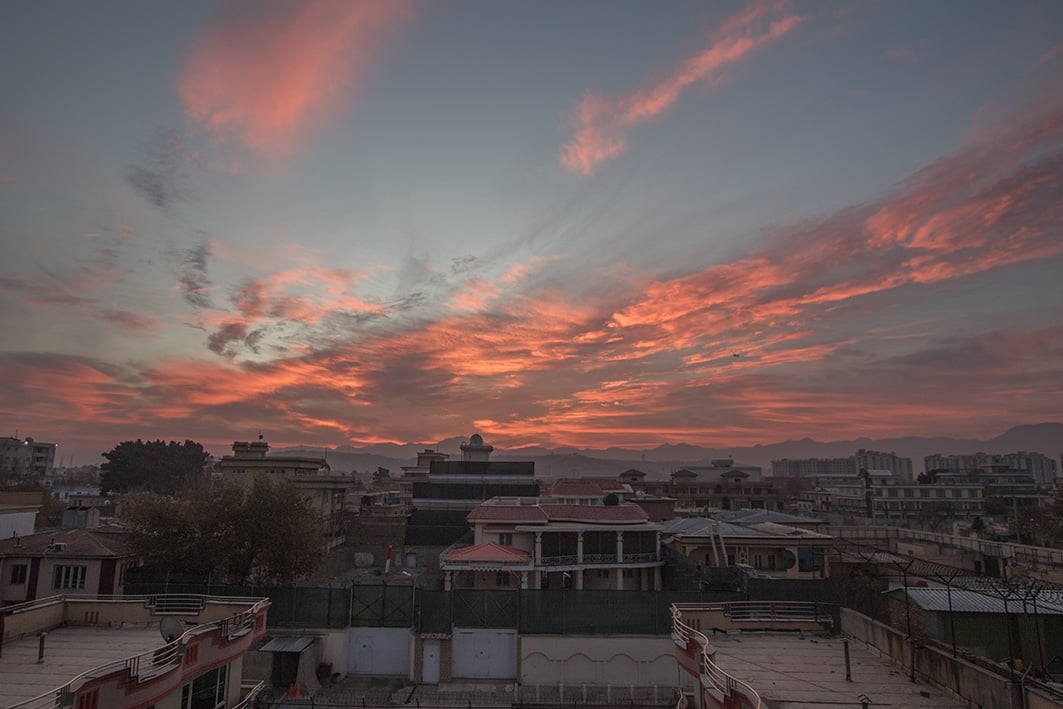
After nearly 20 years, the US presence in Afghanistan has come to an end, and with it, the Afghan government has collapsed in the wake of a week-long, nation-wide takeover by the Taliban, who entered Afghanistans capital city, Kabul, on Sunday, August 15, after taking control of every major city across the country in less that ten days.
President Ashraf Ghani has fled, while the US forces occupy Hamid Karzai International Airport, which is still controlled by American soldiers, to prioritise the evacuation of American personnel over the many Afghans who had helped US forces over the country’s long occupation. Harrowing scenes have been shared across the media overnight of dozens of Afghanis running alongside an Air Force plane as it nears takeoff, in a final plea to escape the country. Meanwhile, at the Presidential Palace, the Taliban have occupied the building, and Afghan interior minister Abdul Sattar Mirzakwal announced in a recorded video on Sunday that there will be a “peaceful transfer of power” to a transition government, with Afghan officials still reportedly attempting to negotiate the terms of that transition.
View this post on Instagram
The scene in Kabul (and across the nation) for Afghan citizens is dire. With hundreds of thousands of citizens displaced as they have fled from rural areas to major cities still under government control, US allies, journalists, and anyone who has assisted the US mission are left vulnerable and at risk to the Taliban, and for women and children, in the areas again under Taliban control, women and girls have been banned from education and their freedom of movement restricted. Reports of forced marriages have also surfaced. Those are just a few examples of the humanitarian crisis that has been unfolding for decades. For more information on what is taking place in Afghanistan shared by activists, journalists and thought leaders, how to help, and where to donate to those in need, below are some resources to do so.
Follow
Donate
International Rescue Commitee - The IRC has worked in Afghanistan through three decades of crisis, providing millions of people with shelter, education, clean water, health support and other aid.
Afghan Aid - Afghan Aid helps to build basic services, improves livelihoods, strengthens the rights of women and children, helps communities protect against natural disasters and climate change, and responds to humanitarian emergencies.
Enabled Children Initiative - ECI runs Window of Hope private care home, which provides care to Afghan children and youths with disabilities from around the country who have been abandoned or orphaned.
Urgent Support to Internally Displaced People GoFundMe - a fundraiser to urgently support displaced families currently sleeping in open air and in parks.
Support For Women International - providing urgent support for Afghan women.
Contact your officials
Show your support to Afghanistan by holding your elected officials accountable in breaking the silence on the situation in Afghanistan to raise awareness and urge them to take concrete actions in support of the Afghan people, help oppose and reverse the Taliban onslaught, and condemn Taliban’s regional backers, publicly and forcefully. To do this, you can find and write to your local MPs and members of congress.
Australia - This link helps you find your MP and has also automatically drafted a letter to send. We recommend adding a few notes of your own to help distinguish between cold emails.
United States - This is an Afghan Congressional Call Script with the names of who to contact and a template of what to demand.
UK - find your local MP to contact for their support.
Further Resources
For further reading on the crisis in Afghanistan, additional places to donate, activists to follow, and petitions to sign, please refer to afghanistanmatters.ccard.co for extensive resources.



